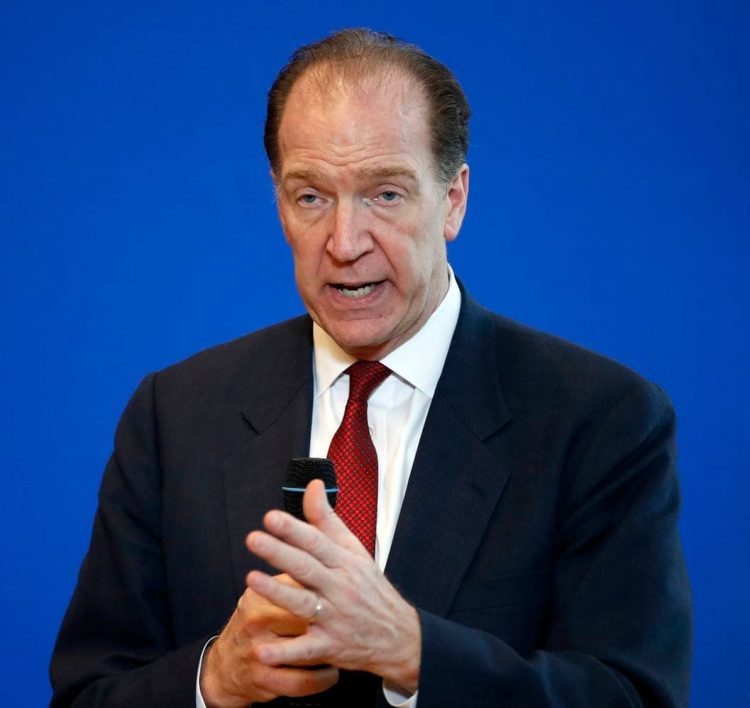The World Bank voted $17 billion annually to tackle food insecurity and provide emergency assistance and bolster safety nets.
World Bank Group President, David Malpass disclosed this at the Spring Meeting 2020 Media Roundtable opening remarks in Washington DC.
He said global trade is still still facing quotas, high import tariffs, high export tariffs, expensive food price subsidies, and even export bans on food products.
“These should stop. The international community needs to immediately step up emergency assistance for food insecurity and help bolster social safety nets. From the World Bank’s standpoint, we are providing roughly $17 billion per year to strengthen food security – a big part of the global effort,” Malpass directed.
Continuing. Malpass said he was deeply concerned about developing countries. “They’re facing sudden price increases for energy, fertilizer, and food, and the likelihood of interest rate increases. Each one hits them hard.
These, plus the war in Ukraine and China’s COVID-related shutdowns, are pushing global growth rates even lower and poverty rates higher,” he said.
He said the bank has lowered our 2022 growth rate to 3.2 per cent from 4.1 per cent before.
“People are facing reversals in development for education, health, and gender equality. They’re facing reduced commercial activity and trade. Also, the debt crises and currency depreciations have a burden that falls heavily on the poor,” he said.
“For Ukraine, we’ve mobilized nearly $1 billion in emergency financing, and we’ve announced another $1.5 billion to support essential government services. I made that announcement in Poland last week,” he said.
“Food crises are bad for everyone, but they’re devastating for the poorest and most vulnerable. There are two reasons. First, the world’s poorest countries tend to be food importing countries. Second, food accounts for at least half of total expenditures in household budgets in low-income countries, so it hits them hardest,” he added.
He said that Kristalina Georgieva, IMF Managing Director, Ngozi Okonjo-Iweala, World Trade Organisation Director-General, and David Beasley (UN World Food Program Executive Director) are also in sport of boosting food security.
“We wanted to highlight the issue and help coordination. Countries must be taking action now to encourage the production of food, energy, and fertilizer. The production chain needs all three. It’s vital for countries, both advanced and developing, to reduce their trade barriers,” he said.
Malpass said that COVID-19 response is still underway. “The World Bank Group expanded our financing rapidly, reaching $157 billion in the 15 months ending June 2021. Vaccines were a big part of this effort. We now expect to have committed $11 billion to purchase and deploy vaccines in our current fiscal year ending June 30, benefiting 81 countries. This has been a massive effort by our country teams around the world and has brought hundreds of millions of shots to arms,” he said.
He said that over the next few weeks, he would be discussing with World Bank board a new 15-month crisis response envelope of around $170 billion to cover April 2022 through June 2023. He said that debt and inflation are two big problems facing global growth.
“Due to high debt and deficit levels, countries are under severe financial stress. Sixty per cent of low-income countries are already in debt distress or at high risk of it. I participated virtually in our April 13 conference on debt transparency and sustainability, and suggested steps to improve the implementation of the Common Framework.
These included establishing a timeline for forming creditors’ committees, suspension of debt service payments and penalty interest, expanding eligibility, simple rule so that it can be evaluated and enforced and engaging commercial creditors at the beginning of the process. He said that debt crisis is expected to continue to worsen in 2022.



